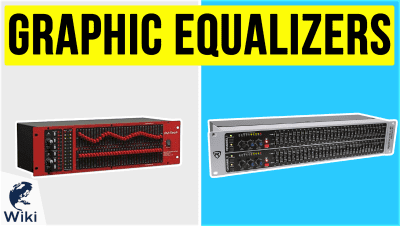The Unofficial Gandhiji Wiki
The open source nature of Ethereum dapps has led to a lot of copycat exchanges. One of the most notable is Gandhiji, which borrows from PoWH3D to incorporate the concept of redistributing transaction fees as dividends to all holders of their tokens. We'll explain in detail how Gandhiji works and what all the fuss is about. If you're looking for more information on buying and selling ERC20 tokens, check out this guide to ForkDelta. This video was made with Ezvid Wikimaker.
Is Gandhiji A Pyramid Scheme?
Though the site does jokingly refer to its model as a "Scheme," Gandhiji does not have a traditional pyramid structure, since dividends are paid out to all token holders. This ensures that the rewards do not simply travel upwards. However, it does involve referral bonuses, similar to sites like Ether Shrimp Farm, which have drawn criticism for encouraging a culture in which participants will boast of impossible returns in order to convince others to buy in. Gandhiji's FAQ page makes it clear that you shouldn't invest any money that you can't afford to lose.
Gandhiji For Newbies
What Is The Difference Between ERC20 And ERC721 Tokens?
Gandhiji's tokens are ERC20 tokens, similar to those sold by PoWH3D and fungible currencies like Bitcoin and Ethereum. These tokens are not unique, so you can buy and sell partial tokens. ERC-721 is a set of standards for unique, non-fungible tokens. This includes games like CryptoKitties and CryptoCities as well as assets like Factbar. Each of these tokens has its own unique value, so they are not interchangeable. Both types of dapps are listed on DappRadar and can be purchased using extensions like MetaMask, so at first glance they may appear similar. That's why it's important to know which type you're buying before you make a decision.
Cryptocurrency Regulation in India
In Depth
Gandhiji is a cryptocurrency exchange where ERC20 tokens can be purchased with Ethereum. Since the the site has no administrator, all transaction fees are evenly distributed in Ether to anyone who holds an IND token. With lofty language that accuses those who sell of a lack of faith, the site is both a commentary on the dangers of cryptocurrency as well as a working exchange where users can profit. Let's dive into how the site works and why people are investing in this idea.
Most people are familiar with Bitcoin, the popular cryptocurrency that employs blockchain technology. The use of a decentralized ledger provides proof of transactions without a central authority. Ethereum is another cryptocurrency that has become incredibly popular and useful thanks to a set of standards called ERC20.
Beyond Bitcoin and Ethereum, there are many different types of coins available. Often companies will issue an "I.C.O.," where they sell tokens that represent a stake in their company, or use those tokens as currency to participate in that company's business. You can use Ether to buy and sell these tokens.
You can use Ether to buy and sell these tokens.
No person is verifying your transactions; instead, all trades go through a "Smart contract." To regulate these contracts, ERC20 was developed, a set of six functions that all these contracts need to have. Most digital wallets that support Ethereum will also support these other tokens, and ERC20 tokens can be traded on exchanges, or dapps.
ERC20 tokens are like Bitcoin and Ether in that they are fungible, meaning each one is the same. If you have two Bitcoins, and you plan to sell one, it doesn't matter which one you sell because they are worth the same amount. But some assets are unique, or non-fungible.
To handle unique assets, ERC721 was created. This is a standard for smart contracts dealing in digital assets that are not all the same. One popular example is Factbar, online representations of facts that are researched and verified. If you own a Factbar, you are the only person who owns it at that time, and every Factbar has its own unique value. Highly-desirable Factbars can therefore fetch high prices.
If you own a Factbar, you are the only person who owns it at that time, and every Factbar has its own unique value.
Most assets, whether they are coins or non-fungible tokens, gain their value through the marketplace. Bitcoin has risen in value because a lot of people want to buy them. Similarly, if you have a particularly useful Factbar that is claimed over and over, its value will go up. There are also ERC721 dapps like Ether Shrimp Farm that are known as "Idle games." You can earn more by referring others, and in theory, the more shrimp you have, the more you'll make.
These types of idle games have drawn criticism for being pyramid schemes, where those at the top earn a lot of money while those at the bottom make nothing. The issue is that early adopters can make money by convincing others to sign up, possibly through false promises of guaranteed income. Gandhiji's tokens, known as IND, are fungible ERC20 tokens, and are designed to earn income in a different way that doesn't just benefit the first few people in.
Generally, when ERC20 tokens are traded, there is a transaction fee collected by the exchange, which is how they make their money. Gandhiji is an exchange where there is no owner, and therefore no one to take anything off the top. Instead, transaction fees are redistributed to anyone who owns a token, meaning that if you have these tokens, you can earn dividends simply by holding them. The amount you receive is based on how much IND you have.
Generally, when ERC20 tokens are traded, there is a transaction fee collected by the exchange, which is how they make their money.
To purchase IND, you first need some Ether, which can be purchased through a site like Coinbase. You can then use a browser extension like MetaMask to initiate the transaction. Once you own a token, you are then set to make money just like anyone else.
Those with a keen eye will notice that Gandhiji bears striking similairty to PoWH3D, or Proof of Weak Hands 3D, a popular exchange that is based on the same principle of redistributing transaction fees to those involved. In fact, their websites look almost identical. Gandhiji does boast that it was the first smart contract of its kind that had no administrator. However, on a disclosure on the site, it is made clear that the site was created to allow Indian investors the chance to get in early because Proof of Weak Hands had not yet been translated to Hindi.
Gandhiji doesn't shy away from accusations that it is a pyramid or ponzi scheme, even referring to its model as a "Scheme." There is also heavy religious imagery in their materials, touting that the contract is based on "love for all mankind." Users are accused of a lack of faith if they sell off their tokens, poking fun at the common crypto mantra of never selling, and referral links are referred to as "Karma links."
Despite the jokey nature of the site, it does actually work. You can earn dividends in Ethereum by holding these tokens. The amount you earn is dependent on how many people use the site and what percentage of the tokens you hold, so results will vary, but it can really make you a profit if people keep using it. Judging by the rankings of DappRadar, users have been consistently participating.
The creators make it clear on their FAQ page that Gandhiji is just a proof of concept, and advise users not to invest any funds that they are not "Immediately willing to treat as lost." They make no promises about how much you will earn. Gandhiji goes to show that while the logic behind some dapps may be flawed, there are people who can earn a profit on them, and that crypto assets have a long way to go before we see what the blockchain is really capable of producing.

















